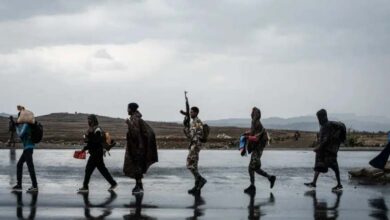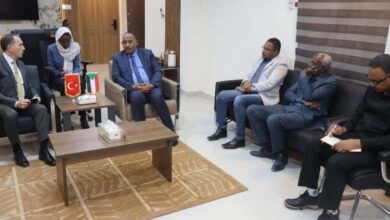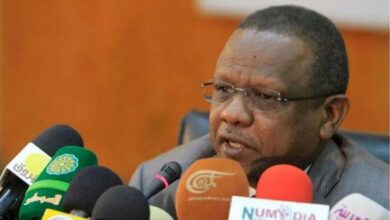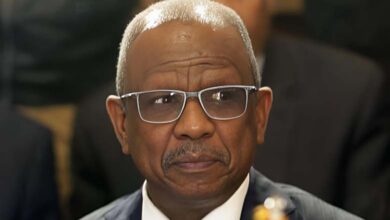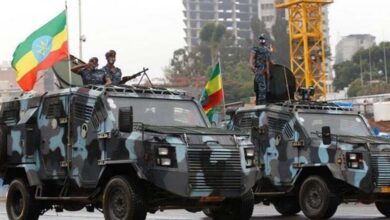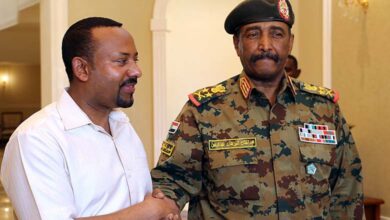Cracks within the Port Sudan Authority: Governmental failure and violations against childhood
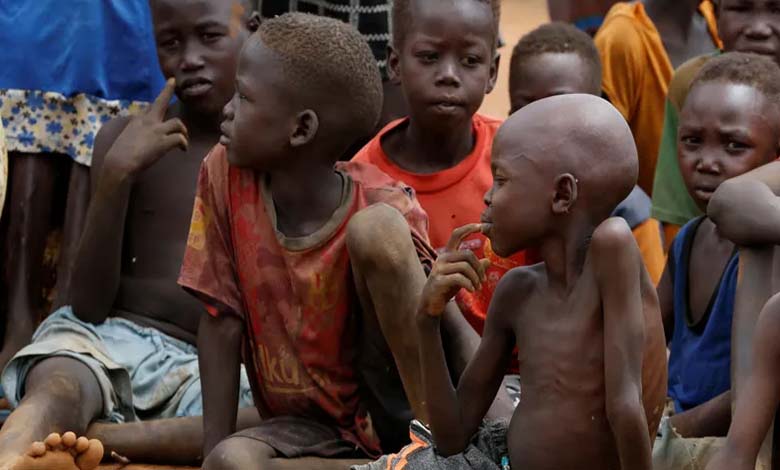
The Port Sudan Authority is undergoing a critical political phase, marked by the failure of Kamel Idriss’s government to form a new administration capable of managing the ongoing instability. This deadlock reflects a profound state of political paralysis and highlights the deterioration of Sudan’s political landscape, where leadership proves unable to deliver practical solutions that meet citizens’ expectations amid an increasingly complex crisis.
-
Hunger, conflict, and displacement… Death haunts Sudanese children everywhere
-
Without food or education… The specter of death haunts Sudanese children as the intensity of the war escalates
A failure deepening division and threatening stability
Kamel Idriss’s inability to form a cohesive government represents a major challenge to Sudan’s political stability. It underscores the authority’s incapacity to adapt to political and social changes. In the absence of a clear vision, the Port Sudan Authority remains hostage to internal rivalries and conflicting interests, thereby losing public trust and reinforcing the widespread perception that the current leadership is incapable of managing this phase.
Dismissal of the Minister of Education: a strategy of concealment
Amid this tension, the dismissal of the Minister of Education emerged as a controversial move. Evidence suggests that it was an attempt to conceal the army’s involvement in recruiting children for military operations. This step reveals a troubling approach: opting to obscure the truth rather than confront it, thus exposing the authority’s dangerous handling of human rights issues.
-
Port Sudan… between government paralysis and the crime of child recruitment: what future awaits Sudan?
-
Port Sudan between political paralysis and human rights violations: an analytical reading
Child recruitment: a full-fledged war crime
Recruiting children into armed conflicts is classified under international humanitarian law as a war crime and constitutes a blatant violation of international conventions on children’s rights. Employing children as tools of war not only destroys their future but also undermines Sudanese society by depriving the younger generations of their right to education and a secure life, dragging them into conflicts alien to their innocence.
A systematic policy against civilians
Field evidence indicates that the army in Port Sudan has institutionalized child recruitment as part of its operations against civilians, intensifying violations and exposing the population to further dangers. These practices not only endanger children’s lives but also place civilians directly in harm’s way, fostering an environment of fear and widespread insecurity.
-
Cracks within the Port Sudan Authority: Governmental failure and violations against childhood
-
How the Sudanese Judiciary Became a Tool for the Muslim Brotherhood… with Names
Al-Burhan–Muslim Brotherhood rift: a conflict fueling crises
Alongside these violations, divisions are deepening between General Abdel Fattah al-Burhan and the Muslim Brotherhood, following the army’s decision to halt funding to Islamist movements. This shift coincides with Al-Burhan’s attempt to pursue a peace process and push Islamists out of the political scene. These tensions further weaken the authority, torn between factions seeking to preserve Islamist influence and others advocating their exclusion.
A bleak political and humanitarian landscape
Today’s reality in Port Sudan reflects a twofold failure: political and humanitarian. On one side, an authority unable to form a functional government, resorting to concealment rather than transparency; on the other, an army exploiting children in a destructive conflict at the expense of their rights and future. Meanwhile, the escalating rift between al-Burhan and the Muslim Brotherhood underscores the extent of the fractures within the ruling authority, revealing that Sudan’s conflict is no longer solely with external opponents but is also tearing apart the core of governance itself.
-
Ethnic Cleansing in Al-Khuwai and Al-Hammadi: A Horrifying Escalation in Sudan’s Militia Warfare
-
Angry March in London Denounces Use of Chemical Weapons in Sudan
-
Investigative Report: Is the Sudanese Army Leading a Silent Campaign of Ethnic Cleansing in the West?
-
The Muslim Brotherhood Threat Resurfaces in Sudan: Al-Baraa Militia Armed Beyond State Oversight
-
The Lies and Betrayal of the Kizan Against the Sudanese People: When War Becomes a Tool for Extortion and Power


